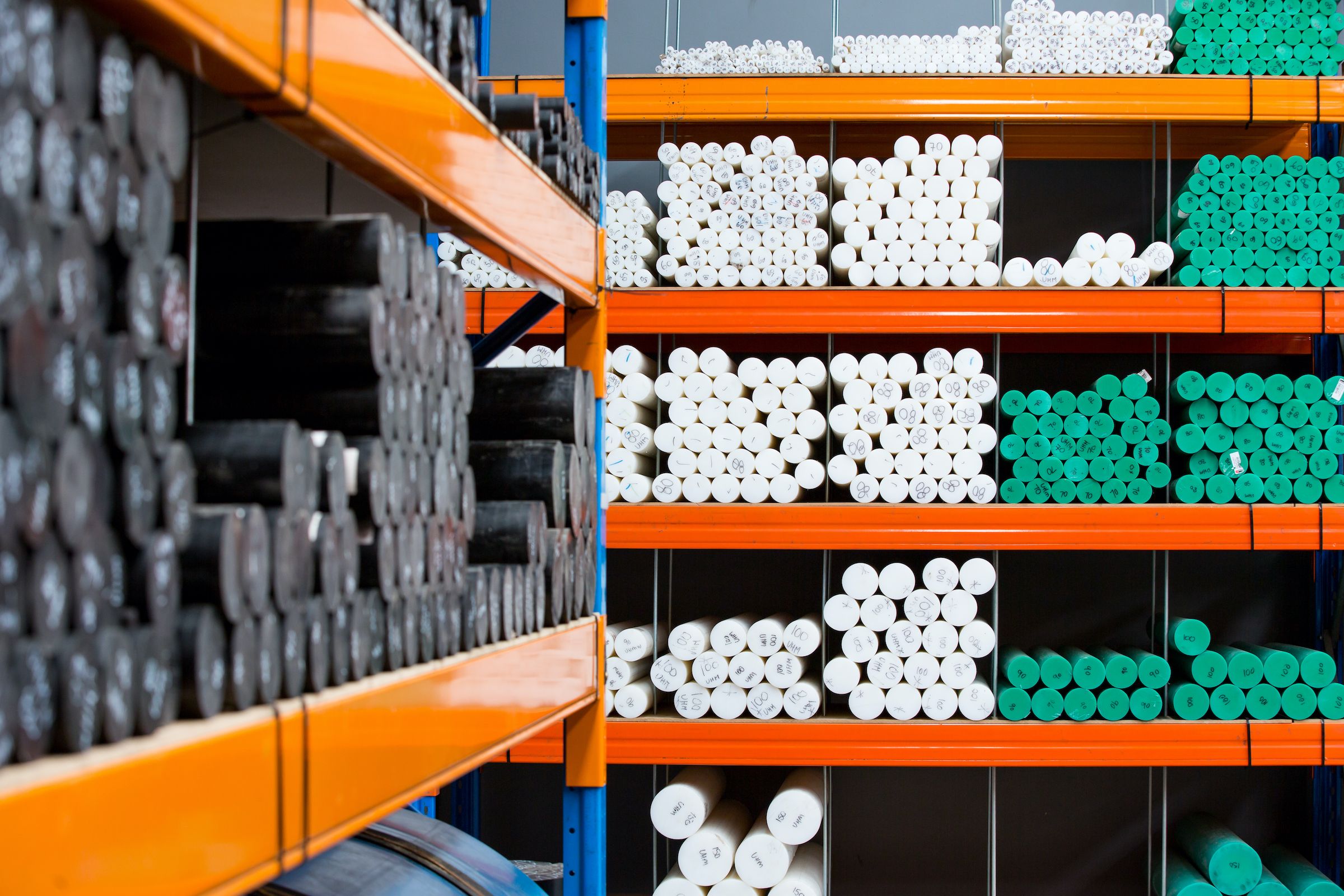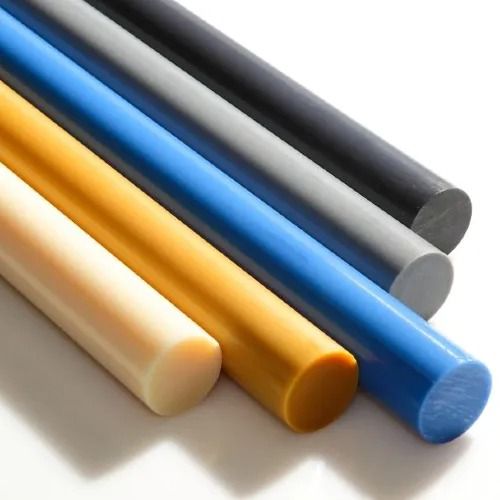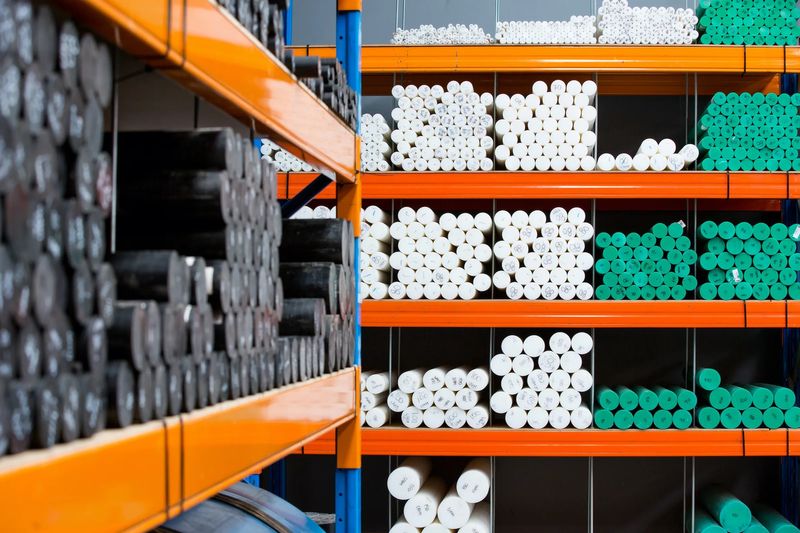At a glance
- Quality Assurance: Certified engineering plastics ensure consistent quality and performance, reducing the risk of product failures.
- Safety Compliance: Adhering to industry standards and certifications guarantees that your materials are safe for use in critical applications.
- Sustainability and Reputation: Certified materials often meet environmental standards, enhancing your company's reputation for responsible manufacturing.
In the ever-evolving world of manufacturing and industrial applications, the demand for materials that offer precision, reliability, and safety is higher than ever. Engineering plastics have become a cornerstone in various industries, from automotive to electronics, thanks to their superior properties. However, not all engineering plastics are created equal. The choice of certified engineering plastics can significantly impact the quality, safety, and success of your projects. In this article, we will explore why choosing certified engineering plastics is crucial and how it benefits your business.
The Importance of Certification in Engineering Plastics
Certification in the field of engineering plastics is more than just a formality; it is a testament to the material's quality, safety, and performance. Certifications such as ISO 9001 or specific industry standards are essential markers that indicate a material has been tested and verified to meet stringent requirements. For manufacturers, using certified engineering plastics means ensuring that their products are reliable, durable, and safe for end-users.
Certified engineering plastics are particularly vital in industries where failure is not an option, such as aerospace, medical devices, and automotive manufacturing. These certifications provide peace of mind, knowing that the materials have been rigorously evaluated for their intended use, which is crucial for maintaining high standards and protecting your brand's reputation.
One of the key standards that manufacturers need to adhere to is the Restriction of Hazardous Substances (RoHS) directive. RoHS compliance ensures that engineering plastics used in various products do not contain certain hazardous materials, such as lead, mercury, cadmium, and other harmful substances that can pose risks to human health and the environment.
What Does RoHS Compliance Mean?
RoHS compliance means that a material or product meets the requirements set forth by the RoHS directive, which restricts the use of specific hazardous substances in electrical and electronic equipment. This directive is particularly relevant for industries such as electronics, automotive, and consumer goods, where the use of hazardous materials is a significant concern.
Engineering plastics that are RoHS compliant have been tested and certified to be free from these harmful substances, making them safe for use in applications where environmental and human safety are priorities.
Benefits of Using RoHS-Compliant Engineering Plastics
- Environmental Responsibility: By choosing RoHS-compliant engineering plastics, companies demonstrate their commitment to environmental sustainability. These materials help reduce the environmental impact of manufacturing and disposal, as they do not release toxic substances that can contaminate soil and water.
- Regulatory Compliance: For manufacturers selling products in regions where RoHS compliance is mandatory, such as the European Union, using RoHS-compliant engineering plastics is not just beneficial—it’s essential. Non-compliance can result in fines, product recalls, and damage to a company’s reputation.
- Market Access: Products made with RoHS-compliant engineering plastics have easier access to global markets, especially in regions with stringent environmental regulations. This compliance can be a significant competitive advantage, allowing companies to meet the growing demand for eco-friendly products.
- Enhanced Safety: RoHS compliant engineering plastics ensure that end products are safer for consumers. By eliminating hazardous substances, these materials reduce the risk of health issues related to exposure to toxic chemicals.
Quality Assurance Through Certified Engineering Plastics
1. Consistency in Material Properties
One of the primary reasons for choosing certified engineering plastics is the assurance of consistent material properties. Certifications like ISO 9001 guarantee that the materials you receive will perform consistently across different batches. This consistency is critical in applications where precise mechanical, thermal, or electrical properties are required.
For instance, acetal plastic products used in high-precision components such as gears or bearings must maintain exact tolerances to function correctly. Using certified acetal plastic ensures that these components will perform as expected, minimising the risk of costly failures or product recalls.
2. Reliable Performance Under Stress
Certified engineering plastics are often tested under various conditions to ensure they can withstand the stresses of real-world applications. For example, polycarbonate sheets used in safety applications must be impact-resistant and durable. Certification ensures that these materials have been tested for such properties, providing confidence that they will perform reliably under stress.
Similarly, PEEK plastic, known for its high-temperature resistance and mechanical strength, is often used in aerospace and medical applications where performance cannot be compromised. Certification guarantees that the PEEK plastic you use meets the required specifications, reducing the risk of failure in critical applications.
Safety Compliance and Certified Engineering Plastics
1. Adherence to Industry Standards
Safety is paramount in industries such as food and beverage, medical, and automotive manufacturing. Certified engineering plastics are often required to meet specific safety standards, ensuring that the materials are safe for use in these sensitive applications.
For example, PTFE plastic is widely used in food processing due to its chemical resistance and non-reactive properties. Certification ensures that the PTFE plastic meets food-grade standards, such as FDA approval, making it safe for contact with food products.
Similarly, PET plastic used in packaging or medical applications must meet stringent safety standards to prevent contamination or adverse reactions. By choosing certified PET plastic, manufacturers can be confident that their products are safe for consumers.
2. Risk Mitigation
Using certified engineering plastics is a proactive way to mitigate risks associated with product failures, recalls, or safety issues. In the automotive industry, for example, using certified materials for components like fuel system parts or electrical connectors ensures that these parts meet the necessary safety and performance standards.
This is especially important in applications where failure could lead to catastrophic consequences, such as in aircraft components or medical devices. Certified materials provide an added layer of assurance that the products you manufacture are safe and reliable.
Sustainability and Reputation: The Broader Impact of Certification
1. Environmental Responsibility
In today’s environmentally conscious market, sustainability is a key consideration for both consumers and manufacturers. Certified engineering plastics often comply with environmental standards, such as those for recycling or the reduction of hazardous substances.
For instance, HDPE sheets used in various applications are often certified to meet environmental standards, ensuring that they are made from recyclable materials and have a lower environmental impact. By choosing certified HDPE sheets, companies can demonstrate their commitment to sustainability and reduce their carbon footprint.
2. Enhanced Brand Reputation
Using certified engineering plastics can enhance your brand's reputation as a responsible and quality-focused manufacturer. In industries where certifications are a requirement, having your products made from certified materials can be a significant selling point.
For example, a company that manufactures medical devices using certified cast nylon sheets or HDPE can market its products as meeting the highest safety and quality standards, giving it a competitive edge. In addition, certifications can be crucial for entering certain markets, especially those with strict regulatory requirements.
Finding and Choosing the Right Certified Engineering Plastics
1. Identifying Reputable Suppliers
When selecting certified engineering plastics, it's important to partner with reputable suppliers who have a track record of quality and reliability. Look for suppliers who offer transparency about their certifications and can provide documentation to verify the materials' compliance with relevant standards.
For example, if you need acetal plastic products for precision components in the food and beverage industry, you can partner with a supplier like ePOL in Australia. They are known for their high standards and certified products, ensuring that you receive materials that meet your exact specifications.
2. Evaluating Manufacturing Capabilities
It's also essential to assess the manufacturing capabilities of your supplier. The ability to produce engineering plastics that meet certification standards requires advanced manufacturing processes and stringent quality control. Choose suppliers who have the necessary equipment, expertise, and certifications to ensure that their products meet your needs.
3. Prioritising Customer Support and Technical Assistance
Finally, consider the level of customer support and technical assistance your supplier offers. A reputable supplier should not only provide certified materials but also offer support to help you choose the right materials for your application. This includes technical assistance in understanding the certifications and ensuring that the materials you select will perform as required in your specific application.
The Ease of Purchasing Engineering Plastics Through ePOL's Online Portal
In the fast-paced world of manufacturing and production, convenience is paramount. ePOL offers an innovative online portal that simplifies the process of ordering engineering plastics in Australia. Whether you need PEEK plastic, PTFE plastic, or polycarbonate sheets, ePOL’s online platform provides an effortless shopping experience designed to meet your specific needs.
ePOL's portal allows you to easily browse a wide range of materials, including HDPE sheets and acetal plastic products, compare specifications, and place orders with just a few clicks. This user-friendly interface ensures that you can find the exact product you need, review detailed descriptions, and enjoy quick delivery.
The platform also offers real-time stock updates, secure payment options, and fast shipping, making it the go-to choice for professionals who need reliable materials without the hassle. By choosing ePOL, you're not just purchasing plastics—you're gaining access to a streamlined, efficient process that saves you time and enhances your operational efficiency.
The Clear Advantage of Certified Engineering Plastics
In the competitive and demanding world of modern manufacturing, the importance of using certified engineering plastics cannot be overstated. These certifications ensure that the materials you use meet the highest standards of quality, safety, and performance, which are critical for the success of your products and the reputation of your brand.
Whether you are working in the automotive, medical, aerospace, or food and beverage industries, choosing certified engineering plastics like PEEK plastic, PET plastic, or HDPE sheets from a reputable supplier provides peace of mind and a clear advantage in the marketplace. Not only do certified materials reduce the risk of product failures and safety issues, but they also align with environmental standards, enhancing your company's reputation as a responsible and quality-driven manufacturer.
When it comes to ensuring the success of your products and protecting your brand, the choice is clear: always opt for certified engineering plastics.








